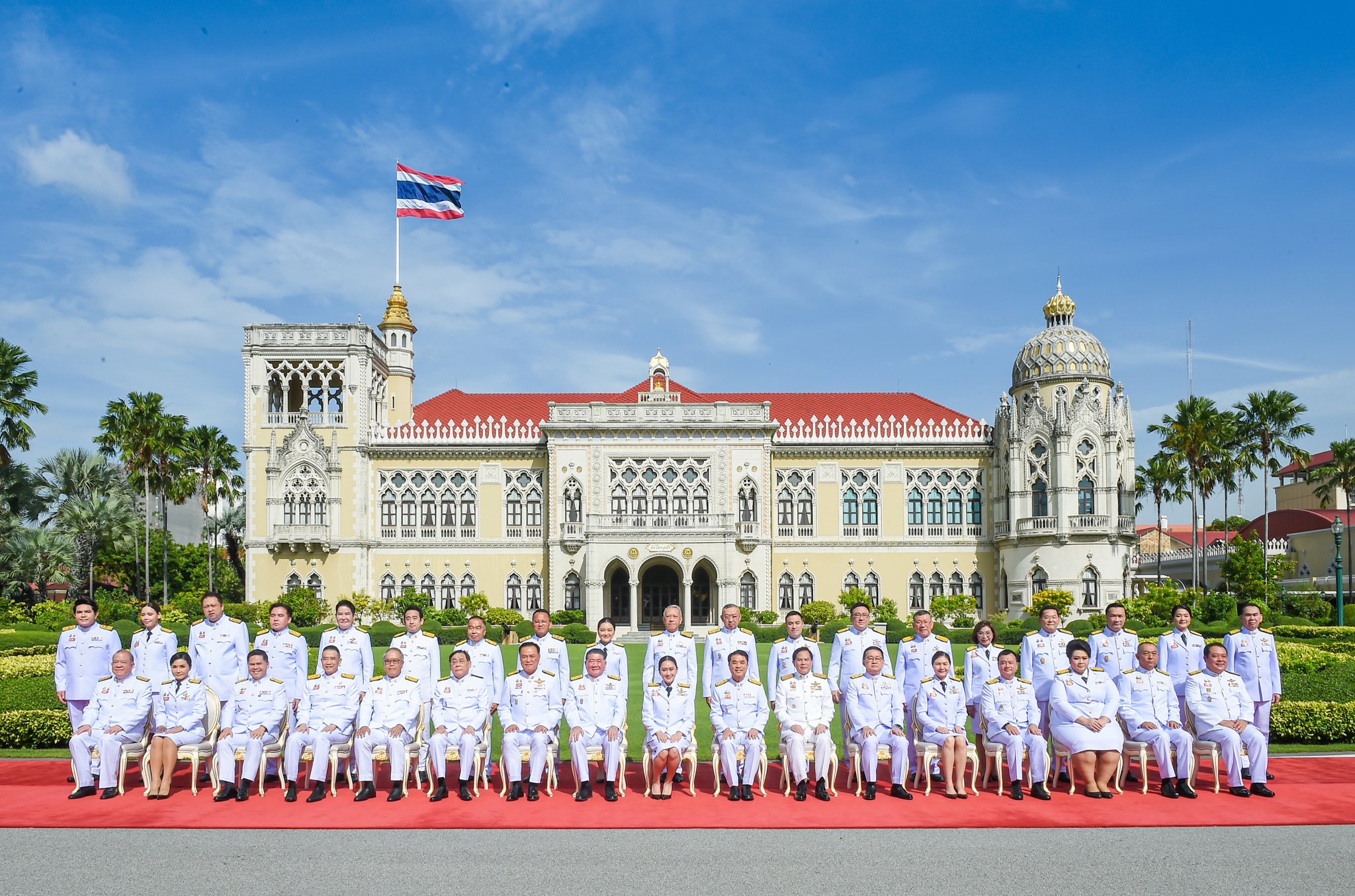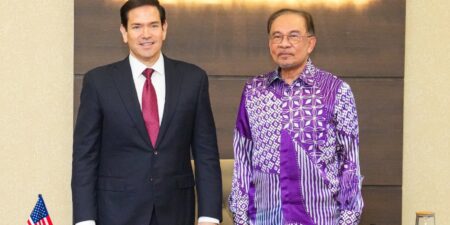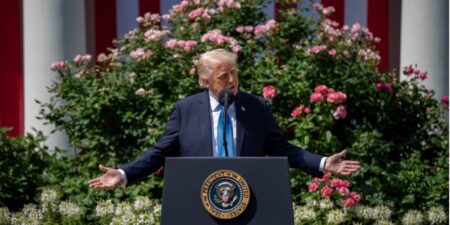BowerGroupAsia Senior Adviser Dr. Thitinan Pongsudhirak wrote an update to clients on Thailand’s new grand coalition government and its economic growth strategy.
The rise of Paetongtarn Shinawatra as Thailand’s new prime minister heading a coalition government led by the Pheu Thai Party, which was originally founded by her father Thaksin Shinawatra, ushers in a seismic realignment of Thai political parties over the past two decades. All of the color-coded street protests between yellow and red, punctuated by two military coups and multiple judicial interventions, have been amalgamized and consolidated in a grand bargain arranged by the royalist establishment to face down the new threat posed by the People’s Party, which stands for fundamental structural reforms of the military, monarchy, judiciary, bureaucracy and economy in a new constitutional order.
This new fault line between the old guard that is propping up Paetongtarn’s government and the “new gen” underpinning the People’s Party will likely dominate Thai politics in the medium term, culminating in a showdown at the next election, which is due by mid-2027. The old guard maneuvered to keep the poll-winning People’s Party out of power last year and to oust Paetongtarn’s immediate predecessor Srettha Thavisin from Pheu Thai’s ticket. Now the question in the near term is whether it will now allow the new administration to make some headway for the Thai economy or let anti-government petitions and protests run amok to paralyze policymaking and worsen signs of economic stagnation. This was the main theme and question of our previous updates (“Thailand: Same Politics, but Different” | K1Tb5oAp2Zf8, “Thailand’s Political Reset Comes With a Twist” | Rn1La0Tc7Zp4, “Thailand’s Post-Election Reset” | X0J1L3Nf8A3p).
Although it comprises 15 parties and 65 percent of elected representatives in the 500-member lower house, the new ruling coalition has brought together previously sworn foes. Pheu Thai’s two precursors, Thai Rak Thai and People’s Power parties, won elections resoundingly in 2001-08 but were destabilized by yellow-clad street demonstrations backed by the Democrat Party. The Pheu Thai-led coalition now includes the Democrat Party. When Thaksin’s sister Yingluck Shinawatra led Pheu Thai and triumphed in the July 2011 poll, she was also opposed by the yellow shirts and later deposed by a military coup in May 2014. The coup-makers stacked a new constitution to their advantage and formed the Palang Pracharat Party (PPRP), which contested the March 2019 election. Although it came in second place just behind Pheu Thai, PPRP rammed its way into office, thanks to support from the pro-establishment ally Bhumjaithai Party and the military-backed Election Commission and Constitutional Court.
In the May 2023 poll, a PPRP faction broke away and formed the United Thai Nation (UTN) party. Both PPRP and UTN were junior partners in the Srettha Cabinet. UTN is back in Paetongtarn’s Cabinet lineup, but PPRP has split, with about half of the party’s 41 elected representatives under powerbroker Thamanat Prompow backing Paetongtarn. The party and its other elected members under coup-maker Gen. Prawit Wongsuwan were left out of the ruling coalition.
Overall, the pro-military parties, from the Democrat Party to PPRP and UTN, that went after Thaksin over the past 20 years have now joined his daughter’s government under his management. The Cabinet portfolios are divided along party lines largely similar to those under Srettha, with the Democrat Party taking the Natural Resources and Environment Ministry and the Thamanat wing keeping the Agriculture Ministry, with him out on sidelines in favor of his brother and associates in direct ministerial roles.
Paetongtarn’s can be likened to a pre-2019 coalition government when the People’s Party was founded as the reform-driven Future Forward Party, which was dissolved a year later and became Move Forward Party. In turn, Move Forward was duly disbanded last month. As its successor, the People’s Party is now the main opposition member, flanked by several elected members from a handful of small parties. Thailand’s political party system now pits the People’s Party against the royalist-conservative rest. One telltale code is the yellow attire worn by Pheu Thai and other coalition partners, while People’s Party types don other colors.
The Paetongtarn government is gearing up quickly. Pheu Thai wants to regain the electoral ground it lost to Move Forward in the election last year. Thaksin, back just 12 months ago after 15 years in exile to enable this establishment-backed bargain, believes he still has the mojo from years past. Yet his 14-point policy vision statement on August 22 sounded like old-style income redistribution and populism with industrial policies more suited to the 2000s than the digitalized era in the latter 2020s and beyond.
But at least Thailand has a semblance of an economic growth strategy again, nowhere near the top of its game as in the early 2000s but much more promising than the 2014-23 period under military-backed governments of Gen. Prayut Chan-ocha. Pent-up for political clarity and policy directions, the Stock Exchange of Thailand index shot up significantly in reaction to the Paetongtarn government formation, the highest in 19 months.
After its official policy announcement on September 12, the government will likely make haste with the initial implementation of its THB 10,000 ($300) digital wallet for each of the eligible 50 million Thais to boost consumption and spur growth. However, it appears the government will tap unused budget from the current fiscal year, which expires September 30, to dish out the THB 10,000 in cash rather than digitally to 14.5 million people who are deemed the most vulnerable. The rest will then receive the THB 10,000 from the 2025 fiscal budget, which starts October 1.
Other policies to be fast-tracked will revolve around rice-and-curry household issues, such as debt relief, utilities price subsidies, wage hikes and combatting drugs and crimes. The old industrial policies and niche industries in food, tourism and small and medium-sized enterprise promotion will likely be rolled out as well. What’s missing and bears watching is government attention on the digital economy and digitalization, particularly the myriad tech innovations and artificial intelligence boom. Another growth node may be entertainment complexes, which would require the legalization of gambling. If this plank is suddenly prioritized, it may be part of the grand bargain on the commercial side.
What Thaksin has outlined and Paetongtarn is to act on seems a generation behind, but it could be enough to engender investor confidence in the near term because the bar has been set so low. All it will take to get the Thai economy moving again is to set aside the petitions and charges that undermine political stability and government effectiveness.
We will continue to keep you updated on developments in Thailand as they occur. If you have comments or questions, please contact BGA Senior Adviser Thitinan Pongsudhirak at thitinan@bowergroupasia.com and BGA Thailand Managing Director Teresa “Art” Siripant at tsiripant@bowergroupasia.com.
Best regards,
BGA Thailand Team

Senior Advisor
Thitinan is a renowned scholar, journalist and expert in international relations and domestic politics across Asia. He has spent more than three decades analyzing and advising on Thailand and the region’s political economy, geopolitics and policy. He helps BGA and clients understand in-depth the global, regional and domestic issues that affect business. Thitinan is a professor of international relations and international political economy at Bangkok-based Chulalongkorn University’s Faculty of Political Science and a senior fellow at its Institute of Security and International Studies. He has lectured widely at local and international universities, military colleges and international organizations on political and ...
Read More


























